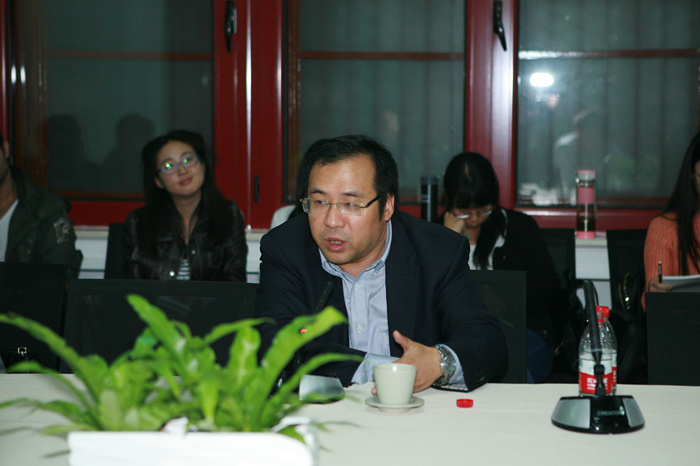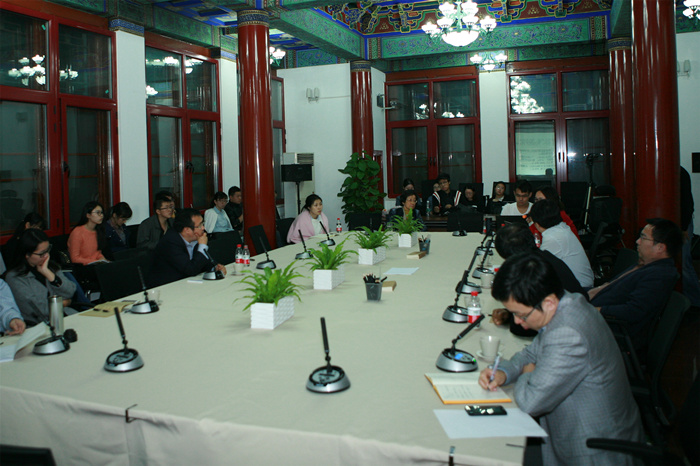On 14 October, 2015, the Institute of International and Strategic Studies (IISS), Peking University (PKU) hosted the second session of “North Pavilion Seminar” at the North Pavilion. Professor Wu Bingbing, Special Research Fellow and President of Arabian and Islamic Institute, PKU, gave a talk entitled “Syria, ISIS and American Policy to the Middle East”. Prof. Wang Jisi, President of IISS, Professor Yuan Ming, Deputy President of IISS, Special Research Fellow Qian Xuemei, Lei Shaohua and some faculty members from School of International Studies were present at the seminar that was hosted by Professor Gui Yongtao, Assistant President of IISS.

Professor Wu Bingbing divided Syrian civil war into five stages with a meticulous and in-depth analysis of the major events in each one. He started with introducing Syrian basic background, and provided detailed information on important political and military influences involved in Syria conflicts. He emphasized three armed opposite organizations existing within Syria and the complicated relations among them and between Syrian government and them. He pointed out that liberal forces in Syria are increasingly fading compared with the growing radical groups represented by ISIS, witnessing the political ideology tends to the extreme. The international community has offered Syria with diplomatic solutions several times, but most of them bring little effect due to dissatisfying the Opposition.

Regarding ISIS problem, Professor Wu Bingbing said that ISIS had developed into a regional religious force of extremes with preliminary national power structure, meaning that it has a distinct ideology recognized by Sunnite Islam and a series of particular publicity strategy, supported by a huge amount of foreign militants. At present, solving ISIS problem should rely on the military strikes, together with eliminating ideological extremalization, political renovation and resolving denominational contradiction, etc.
In terms of current the U.S. policy to the Middle East, Professor Wu opined that America has been ever changing its policy to the Middle East while persisting in military containment against ISIS since 2011 when President Obama expressed that Bashir Assad must step down. However, America’s diplomatic and military efforts have taken little effect; on the contrary, ISIS is still steadily expanding under the U.S. military strikes. Among the main policies against the Middle East in the US, general points including supporting different forces competing with each other, strengthening Kurdish militants and integrating policies to Iran and Syria are all difficult to be put into practice.
Subsequently, Professor Wu Bingbing answered the questions raised by faculty members and students and expressed his views on the specific methods to clear up extremalization in the Middle East and the incorporation of foreign soldiers and Middle East refugees into European society.
Following the principle of looking forward into the global trend and exploring the great strategy of China, the “North Pavilion Seminar” series staged by IISS, PKU provides a platform to build friendships and promote exchanges for experts, scholars, teaching faculties and students in the field of international issues research and international strategies. The seminar is a long-term exchanging event, so it welcomes all sides to recommend speakers and topics, and put forward advice and suggestions.

